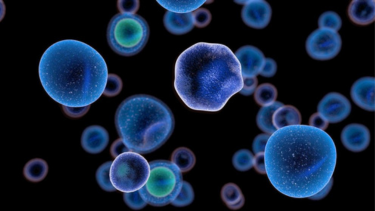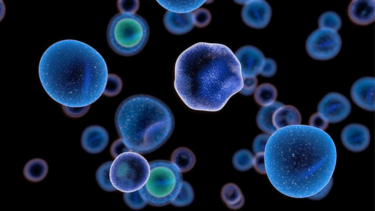Immune cell breakthrough could lead to new treatments


A team of Federation University researchers has discovered how an important type of immune cell develops in humans, potentially paving the way for a new generation of immune-based treatments.
Professor Stuart Berzins from Federation's Institute of Innovation, Science and Sustainability co-led the research project revealing how this specialised subset of unconventional white blood cells develops.
"The cells we are looking at are one of several types of white blood cells in your body. We know that they're important for protection against different forms of cancer, infections and other illnesses," Professor Berzins said.
The so-called gamma-delta T cells are quite different from most other human immune cells. They respond to different stimuli, have distinct functions, and emerged early in our evolution.
Unlike most other immune cells, gamma-delta T cells are found across the spectrum of the animal kingdom, from humans all the way through to hagfish, lampreys and other primitive jawless vertebrates that emerged hundreds of millions of years ago.
"Their role is to coordinate the activities of different parts of the immune response, so it's not surprising that they can impact how well we respond to many different diseases and infections and that defects in gamma-delta T cells are associated with the progression of a wide range of illnesses, including cancer and microbial infections," Professor Berzins said.
Because of this, gamma-delta T cells are seen as an attractive target for immune-based therapies, but a significant stumbling block has been a lack of knowledge about how they develop.
"We know that people can have immune deficiencies where they don't have enough gamma-delta T cells or they don't work particularly well. But finding a solution requires that we first understand how they develop and work in the first place," Professor Berzins said.
The researchers found that the main subset of gamma-delta T cells are produced throughout our lives in the thymus organ. This countered previous scientific doctrine that they were only made during fetal development and raises the possibility that new treatments could target this process at any age.
Importantly, the study also identified how gamma-delta cells develop, which means researchers can now investigate how defects occur and whether the pathway can be targeted to treat or prevent illnesses.
"It was assumed that once you were born, that process stopped, but we saw signs that maybe that assumption was wrong."
Professor Stuart Berzins
"Our study has shown definitively that it was incorrect, and we have shown that humans make these cells throughout our lives.
"This means that we can potentially intervene in that process, whereas if the previous dogma was correct, there would be little opportunity to intervene in a way that would improve your immunity.
"Now our group and other laboratories can build on that research."
The pioneering study is the result of a collaboration between Federation University's Professor Berzins and PhD student Louis Perriman and a group led by Associate Professor Daniel Pellicci at the Murdoch Children's Research Institute.
The work has been accepted for publication in the prestigious Science Immunology journal, and the authors have been invited to present their findings at several international conferences and scientific institutes.
The project team has applied for a grant from the National Health and Medical Research Council (NHMRC) to fund further research into gamma-delta T cells to support the development of new immune-based therapies.
Professor Berzins began looking at these types of cells earlier in his career, working with researchers at the University of Melbourne and the Peter MacCallum Cancer Centre. Then, researchers compared samples from patients with different forms of cancer to a control group of people who were healthy. They consistently found that unconventional T cells were defective in cancer patients.
The findings weren't direct evidence of their importance but were highly suggestive of it.
That work led to more studies of these types of cells.
"We've previously published studies of other types of unconventional T cells, and we have looked at how they work in different patient groups and how they work in patients with cancer," Professor Berzins said.
"We have recently been studying how they develop so that we understand what is required for the body to establish a functional immune system. That's an important element of what we've done in this study.
"The international recognition this research is receiving is very gratifying. It confirms the importance of the discoveries we have made and shows that Federation University continues to produce world-leading research, including in the area of immunology, which is more traditionally associated with larger metropolitan universities and institutes."